This is the scandalous story of how the Maasai people of Kenya lost the best part of their land to the British in the 1900s. Drawing upon unique oral testimony and extensive archival research, Hughes describes the intrigues surrounding two enforced moves and the 1913 lawsuit, while explaining why recent events have brought the story full circle.
Moving the Maasai: A Colonial Misadventure (St Antony’s Series) 1st ed. 2006 Edition
KSh 15,260.00
1 in stock
| SKU: | 9781349545483 |
|---|---|
| Categories: | African Interest, History books |
| Author | L. Hughes |
|---|
Related products
-
The Cry of the Go-Away Bird
KSh 1,200.00The Cry of the Go-Away Bird’ is the debut novel from Andrea Eames. It revolves around Elise, a white Zimbabwean girl living through her teens on the eve of the Mugabe-sponsored farm invasions at the beginning of this century. The author herself grew up in Zimbabwe before moving to New Zealand with her family at the age of seventeen and there is a strong sense of memoir and personal experience in the novel, which has both positive and negative effects on the narrative.
The main character is drawn very effectively. The natural anxieties felt when emerging into an adult world are uncannily accurate, and allow the reader to relate to Elise and her family as their experiences later become more extreme. However, sometimes the story is so personal that it verges on one-sided. There is more variety, and a more complex array of emotions and motivations among the white characters than the black ones. The black characters are unfathomable and often sinister. Perhaps this is how Elise really sees them, but the novel could have perhaps painted a more complex picture for the reader of the spectrum of attitudes surrounding these massive social upheavals.
Eames makes various attempts to describe the fragile nature of race relations in post-independence Zimbabwe. Often she succeeds admirably, as when Elise’s parents invite a black farm-worker and his wife over for dinner in an effort to make friends. The awkwardness felt by all is palpable and it is a fine piece of writing. Eames clearly has a talent for describing a society in microcosm. There are examples of Eames’ considerable powers of observation elsewhere in the book too. Of the ‘Bush War’ (or War of Independence) it is said, The war felt like a death in the family – someone whose name was never mentioned, who was cut out of photographs. Of Mugabe, Elise says, He was like a hated Headmaster, overbearing and incompetent, towards whom you felt a kind of loyalty. This metaphor demonstrates that Eames is certainly able to express complicated emotions in a clear and artful manner.
There are, however, times in the novel when the writing fails in this respect. Sentences such as We were Whites, and nothing else and The air between us was a different colour, are clumsy and blunt, and have a taste of bitterness that the story does not benefit from.
The action in the novel is heavily weighted towards the last half, when the actual farm invasions and killings of farmers are taking place. In these pages the book does become compelling. Eames successfully renders the panicked atmosphere of a rapidly crumbling way of life, and the events feel both real and shocking.
Overall, though well written, the novel is trying to tell too many stories in too many ways. Elise’s story is cut-off by the dramatic political events occurring, but those events appear as from nowhere and lack real context. The book is still worth reading for a glimpse into this interesting and unfamiliar world, but there may be better novels to come from Andrea Eames.
-
Achebe and Friends at Umuahia
KSh 17,290.00WINNER OF THE ASAUK FAGE & OLIVER PRIZE 2016 This is the first in-depth scholarly study of the literary awakening of the young intellectuals who became known as Nigeria’s “first-generation” writers in the post-colonialperiod. Terri Ochiagha’s research focuses on Chinua Achebe, Elechi Amadi, Chike Momah, Christopher Okigbo and Chukwuemeka Ike, and also discusses the experiences of Gabriel Okara, Ken Saro-Wiwa and I.C. Aniebo, in the context of their education in the 1930s, 1940s and 1950s at Government College, Umuahia. The author provides fresh perspectives on Postcolonial and World literary processes, colonial education in British Africa, literary representations of colonialism and Chinua Achebe’s seminal position in African literature. She demonstrates how each of the writers used this very particular education to shape their own visions of the world in which they operated and examines the implications that this had for African literature as a whole. Supplementary material is available online of some of the original sources. See: http://boybrew.co/9781847011091_2 Terri Ochiagha holds one of the prestigious British Academy Newton International Fellowships (2014-16) hosted by the School of English, University of Sussex. She was previously a Senior Associate Member of St Antony’s College, University of Oxford.
-
Sapiens: A Brief History of Humankind
KSh 595.00How did our species succeed in the battle for dominance Why did our foraging ancestors come together to create cities and kingdoms How did we come to believe in gods nations and human rights to trust money books and laws and to be enslaved by bureaucracy timetables and consumerism And what will our world be like in the millennia to come
-
Artisanal Fishers on the Kenyan Coast- Household Livelihoods and Marine Resource Management
KSh 1,200.00Overexploitation of natural resources is often associated with poverty among local populations. A multi-disciplinary team studied artisanal fishers along the Kenyan coast on the Indian Ocean. The main focus of the research was on income diversification of fishers, the pressure on marine resources and the relation between the two. Income diversification did not reduce the pressure on the marine environment. Rather, indications are that many part-time fishers are entering the profession. Moreover, fishers with alternative employment stayed in-shore and used damaging gear more often. Policies to stimulate employment opportunities for coastal communities cannot be expected to lessen the pressure on marine resources and need to be planned carefully in terms of industry location, labour requirements and degree of coastal pollution.
-
From the land of Pashtuns to the land of Maa
KSh 2,000.00From the Land of Pashtuns to the Land of Maa: Memoir (2013) Kenyan-born Khan traces his father’s journey from his village in India (now within Pakistan) to Kenya in 1929, alone, at the age of 18 after a family dispute.
Here is the story of migration, of Khan’s father and other Pashtuns (mainly from the Punjab Province of Pakistan), to the Maasai tribal lands in rural Kenya. His father, Juma Khan, raised 18 children from two wives: the first was a Maasai woman who assumed a Muslim name after marriage, and the second was the daughter of a Pakistani father and Maasai mother. It was a time of colonial rule when mixed marriages – and children from them – were regarded with discrimination.
-
Regionalization of African Higher Education -progress and prospects
KSh 6,720.00Regionalization of higher education in Africa is the least researched topic in the field of Social Science. In this regard, this book is a pioneer in terms of exploring both the historical and theoretical dynamics of regionalization processes within Africa. This book raises fundamental questions that focus on context and formation, operationalization and implications, and challenges and prospects of these regionalization processes. In doing so, it gives both the analytical contexts of the evolution of higher education regionalization and the current initiatives by the African Union. Dissertation. (Series: Contributions to African Research / Beitr�¤ge zur Afrikaforschung, Vol. 73) [Subject: African Studies, Higher Education]
-
After Mandela: The Battle for the Soul of South Africa-the book we have all been waiting for
KSh 650.00When Nelson Mandela and the African National Congress declared victory over the bitter injustice of apartheid, some thought South Africa’s future was assured. But despite Mandela’s mission of reconciliation, rampant inequality remains; race relations are uneasy, violence is endemic and many in the ANC appear to have lost sight of the liberation ideals. With the election in 2009 of Jacob Zuma, a charismatic populist embroiled in scandal, uncertainty over the trajectory of the nation has only intensified.
South Africa now stands at a crossroads, and award-winning journalist Alec Russell draws on his deep knowledge of the country to tell us how it got there and to give us a compelling account, revised and updated for this edition, of the journey from Mandela to Zuma.
-
In His Father’s Footsteps
KSh 400.00As the Americans liberate the Buchenwald concentration camp, among the survivors are teenagers Emmanuelle and Jakob, who fell in love despite the suffering surrounding them. With help, they make their way to New York, resolved to make a new life on the Lower East Side, working at gruelling, poorly paid jobs.
Decades later, Jakob has achieved enormous success, showing his son Max that America is truly the land of opportunity. Max is a Harvard graduate with friends among the wealthiest families in the world, and he chooses a perfect bride to start the perfect American family.
Max’s lavish lifestyle is unimaginable to his cautious, old-world parents. But after the birth of his children, and with a failing marriage, he fears his wife is keeping secrets.
KSh 795.00

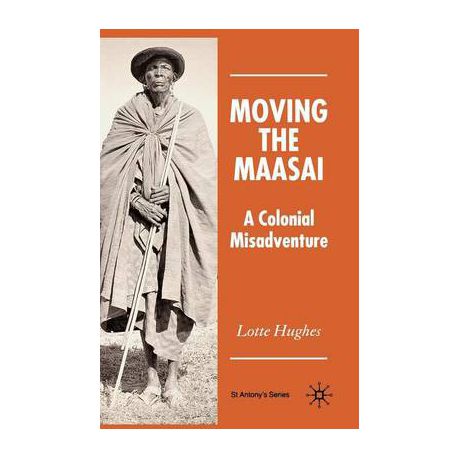

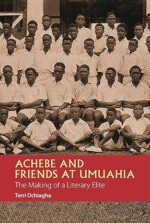


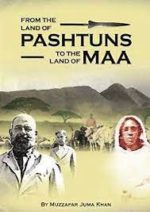
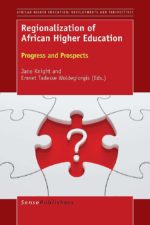
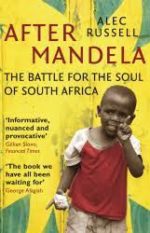

Be the first to review “Moving the Maasai: A Colonial Misadventure (St Antony’s Series) 1st ed. 2006 Edition”